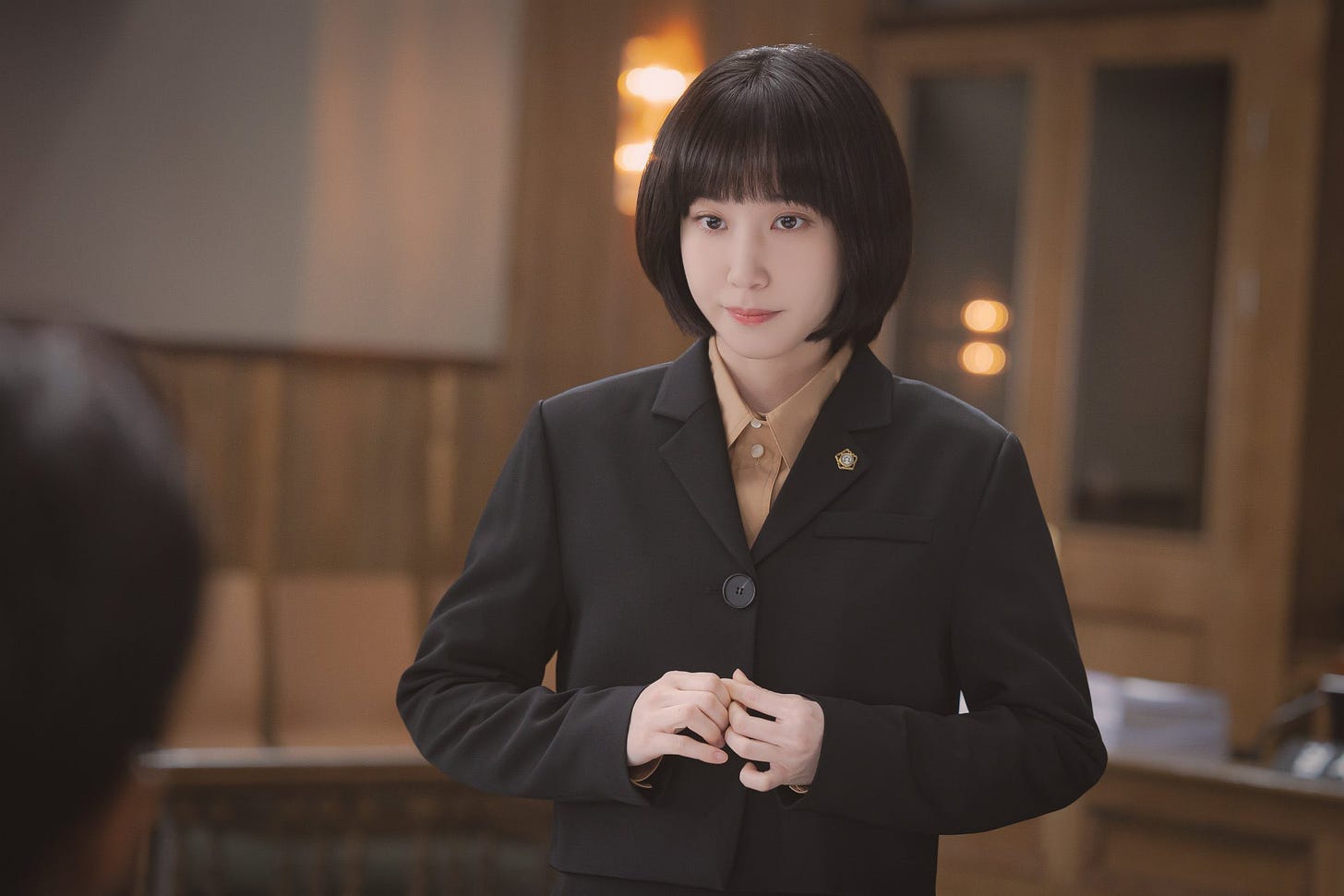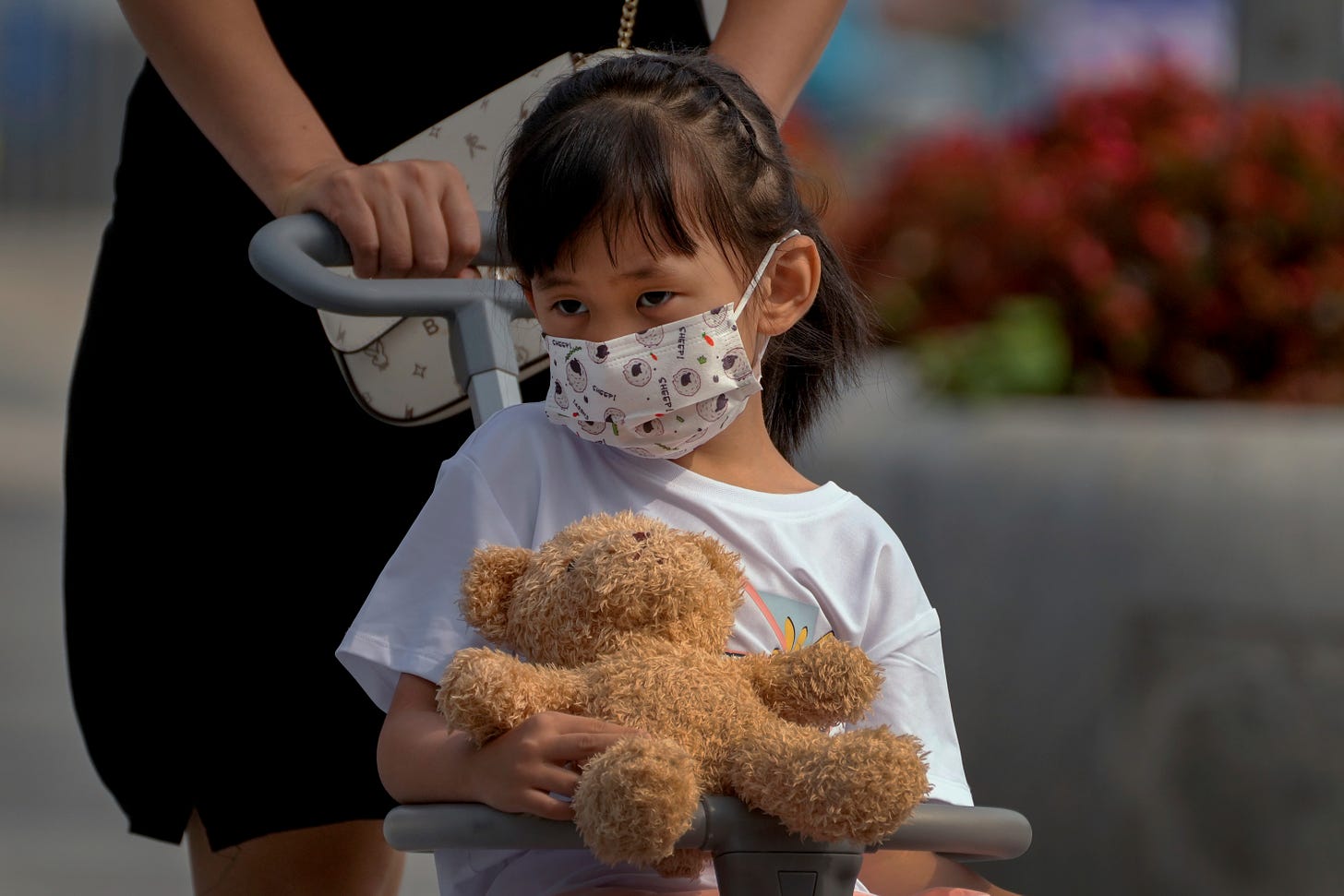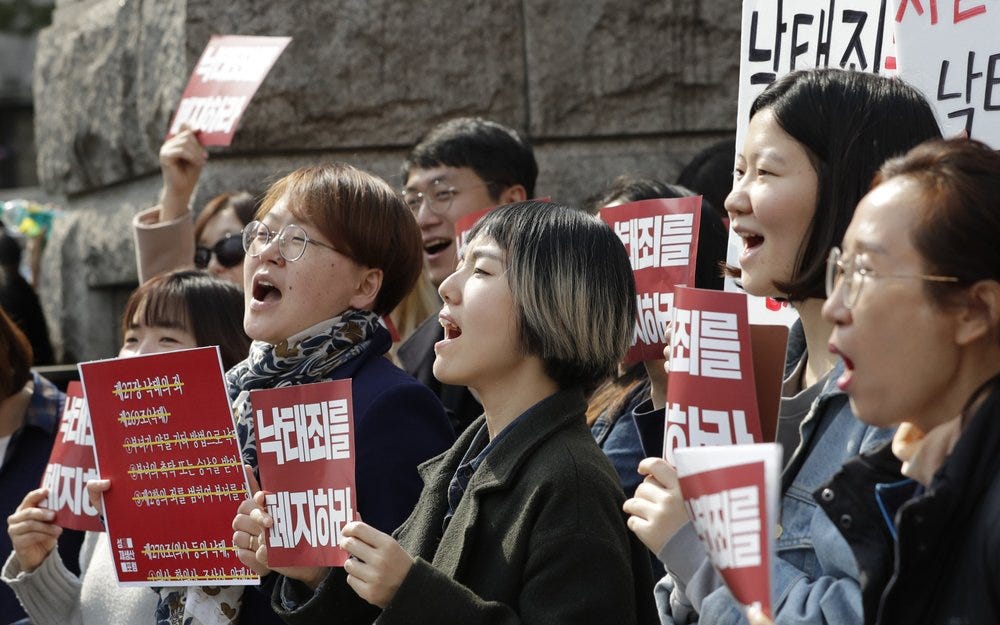Original link: https://sehseh.substack.com/p/226
Text / Jia Xuanning
Editor’s note: The content may talk about the plot, please read it carefully.
After the finale of the popular Korean drama “The Very Lawyer Yu Yingzhen” was broadcast, it not only became the top viewer of Netflix in Taiwan, but also topped the “Recently Popular Korean Dramas List” on the mainland Douban website, with a score of 9.0.
The show has many angles to discuss. Although “Extraordinary Lawyer Yu Yingzhen” is essentially a “big heroine drama” with a legal background, the character of the autistic genius lawyer is clever and lovable, and the interpretation of “autism spectrum disorder” is not conventional. There are also many cases that focus on social issues. The mother-daughter line in the play, although only a side branch, unexpectedly extended some discussions about women’s reproductive rights.
Yu Yingzhen is the illegitimate daughter of her father and Taishou Mei, the daughter of Taishan Law Firm, but because of the disparity between the two families, they could not get together, so Yingzhen was raised by her father alone. Although Taishan Law Firm in the play is the competitor of Wang Yang Law Firm, which Yingzhen serves, many viewers think the role of Taishou Mei is impressive.
Especially in the last episode, the prefect’s son violated the public interest, and she could only publicly apologize for giving up her candidacy for the Minister of Justice. This finale also caused a lot of controversy on the Douban website. In the Douban public opinion atmosphere that emphasizes more on women’s rights, many people think that the prefect should not give birth to Yu Yingzhen. This son and daughter perfectly ruined her career as Minister of Justice.
Someone said, “What did the prefecture-shoumei do wrong? The birth of a genius, a son and a daughter dragged down her career.”
Some people also said that the greatest misfortune of the prefectural governor was that she met Yu Yingzhen’s father when she was young. “The prefect is so miserable. She gave birth to a daughter from an unmarried pregnancy and promised not to contact her again, but decades later, she came to accuse her of being irresponsible. She could have been the Minister of Justice, but was written as a vicious mother by the screenwriter.”
In the Douban group of “The Very Lawyer Yu Yingzhen”, many people said that the emotional line between Yu Yingzhen’s father and the prefect is the biggest failure of the whole drama. The prefect in the play is a standard career woman, not a good mother, but many female viewers are full of sympathy for her, believing that “the reproductive rights should always be in the hands of women, and women can also have their own career ambitions.”
The World Walk has important stories you haven’t read yet. We focus on global issues from a gender perspective, complementing stories of dilemma, breakthrough, connection, and change that traditional power perspectives ignore.
Please pay a subscription to become our partner and walk with women around the world.
Chinese women’s fertility anxiety on Douban
In the discussion of the Taiwanese audience, most of them praised the role of Taishoumei for her good performance, but there were few accusations against Yingzhen’s father. On the other hand, mainland audiences will point out the selfishness of Yingzhen’s father and that the screenwriter should not portray Taishoumei as a “dereliction of duty mother”.
Why does Taishoumei’s choice have completely different perceptions in the eyes of audiences in different regions?
The reason why many mainland audiences feel injustice for Taishoumei is that, on the one hand, female fertility is bound to be sacrificed. There are also rumors that the state will “intervene in abortion”.
Just after the Spring Festival this year, an item in the ” Main Points of Work of the China Family Planning Association in 2022 “, “Implementing a Special Action for Abortion Intervention for Unmarried People”, caused a great uproar on mainland social media. From 2014 to 2019, the number of induced abortions in China averaged 9.5 million per year, while in 2019, the new population was only 4.67 million. Although the three-child policy will be opened in 2021, it will not help the sluggish fertility rate.
Although China has not enacted a ban on abortion, the unhappy birth figures, coupled with the vague definition of “intervention”, still make women anxious. Some experts came out to refute the rumors and believed that at the level of law and policy formulation, China has no realistic possibility of restricting abortion, but whether local governments will impose restrictions on their own is another question. After all, everyone is well aware that in the past, “Planned Parenthood” could pull you into forcing an abortion , and of course it could technically force you not to have an abortion.
Since China enacted the three-child policy in May last year, Chinese men and women have begun to find it increasingly difficult for them to find medical institutions willing to perform sterilizations . In addition, public hospitals can set up barriers for women in abortion surgery, and localities can also limit the purchase of contraceptives. There are countless ways to intervene.
Therefore, mainland women who do not want to have children will panic and care more about “reproductive autonomy”. They didn’t want to be kidnapped by the state’s policies, nor by the male discourse system, so they were filled with righteous indignation when they saw the prefecture’s soft heart: “The womb doesn’t grow on a man. If you want to give birth, you can give birth to him yourself.”
From the past to today, the high threshold for abortion has not disappeared
Abortion is also not easy in South Korea. According to reports , since 1953, South Korea has implemented a ban on abortion for 66 years: According to the criminal law, women can be sentenced to up to two years in prison and a fine of 2 million won for abortion.
In an era of rapid population growth in South Korea, the government’s enforcement of bans was relatively relaxed, but 1996, when Yu Young-min was born, was close to the 2000s when the South Korean government vigorously suppressed abortion due to declining fertility rates. Against this background, Young-min’s father The plot of begging the prefect to keep the child also seems reasonable.
It wasn’t until April 11, 2019, that South Korea’s abortion ban was ruled unconstitutional, and it officially expired the following year. But society’s expectations and pressures on motherhood still exist.
In Hirokazu Kore-eda’s film ” Baby Transfer Station ” set in South Korea, the mother is unable to raise the child after giving birth, chooses to abandon the baby, and must face moral condemnation, but no one blames the father. The reality is the same: when you give birth, you are asked to take on the role of motherhood. This is probably still the mainstream expectation in the entire East Asian environment. Rather than bear such moral condemnation, it is reasonable that more young women in East Asia choose abortion.
In 2020, South Korea finally decriminalized abortion. But American women have lost their constitutionally guaranteed abortion rights for nearly half a century — no longer protected by federal law after Roe v. Wade was overturned in June.
A CBS/YouGov poll in May found that 63 percent of Americans believed it would be harder for poor women to have abortions after Roe v. Wade was overturned. The late U.S. Supreme Court Justice Ruth Bader Ginsburg also pointed out during his lifetime that women who can afford the cost can go to other states that do not restrict abortion, and it is the poor who are really affected.
And it’s not just American women who can’t afford the high cost of abortion.
Abortion is also expensive and difficult in Hong Kong. Although pregnant women up to 24 weeks pregnant can go to public hospitals for surgery, the waiting time is long. Private hospitals can quickly register for appointments, but the cost of 20,000 to 30,000 Hong Kong dollars is a heavy burden for grassroots women with poor financial ability. Therefore, starting in the 1980s, many Hong Kong women chose to cross the border to go to the mainland for abortion.
The cost of childbirth is divided by class
“All decisions in this world require political consideration, because the outcome of emotional decisions is too fragile” ── the original intention of the screenwriter to write this line is to endorse Yingzhen’s father’s hard work in raising Yingzhen, but there are a lot of comments on Douban They all think that it is Taishoumei who made the wrong “emotional decision”. She shouldn’t have a child while doing her career.
In all fairness, the screenwriter did not intend to portray Taishoumei as a “villain”, and it is logical to let her take the responsibility of removing her candidate status in the end. But should I leave the child just because my boyfriend begged? Do women have to fulfill the obligations of mothers when they give birth to children? These are actually personal decisions and there is no right or wrong. The point is that women need to have autonomy over their bodies and freedom to choose their lives.
Going back to Yu Yingzhen’s story, those who resolutely emphasize the “right to life of the fetus” would probably say that if Prefect Mei didn’t give birth to a daughter, there would be one less such a lovely lawyer in the world. But the truth is, no matter what Taishoumei chooses, middle- and upper-class women like her have enough autonomy over childbirth. She can go abroad to give birth, or find a safe way to terminate her pregnancy in South Korea at a high price.
In other words, it is probably because Prefect Mei is the daughter of a wealthy family that she can compromise on her “emotional decision”, she can hand over her daughter to Yingzhen’s father, and then do not communicate with each other – but women at the bottom do not have this freedom, they can only be more rational Calculate how much it costs you to have children.
But at least for me, the mother-daughter line in the play is far more beautiful than Yingmin’s boring love line. I also look forward to seeing more interactions between Ying Yu and Taishou Mei in the second season of the show two years later. (Finish)
About the Author| Jia Xuanning (born in Beijing, raised in Hong Kong, now living in Taiwan. Media person, commentator, but his main job is to do academics, focusing on Hong Kong and Taiwan regional studies, comparative politics and cultural studies.)
Subscribe to the Walk Around Newsletter and we’ll deliver:
[Members only] Go original: a good story that others have not written yet
An Evening News Every Day: A selection of daily news summaries for you
Weekly Newsletter: Good articles from around the world you may have missed
A Weekly Note: A Weekly Guide to Online Activities
【Exclusive benefits for other members】» See here
This article is reprinted from: https://sehseh.substack.com/p/226
This site is for inclusion only, and the copyright belongs to the original author.


